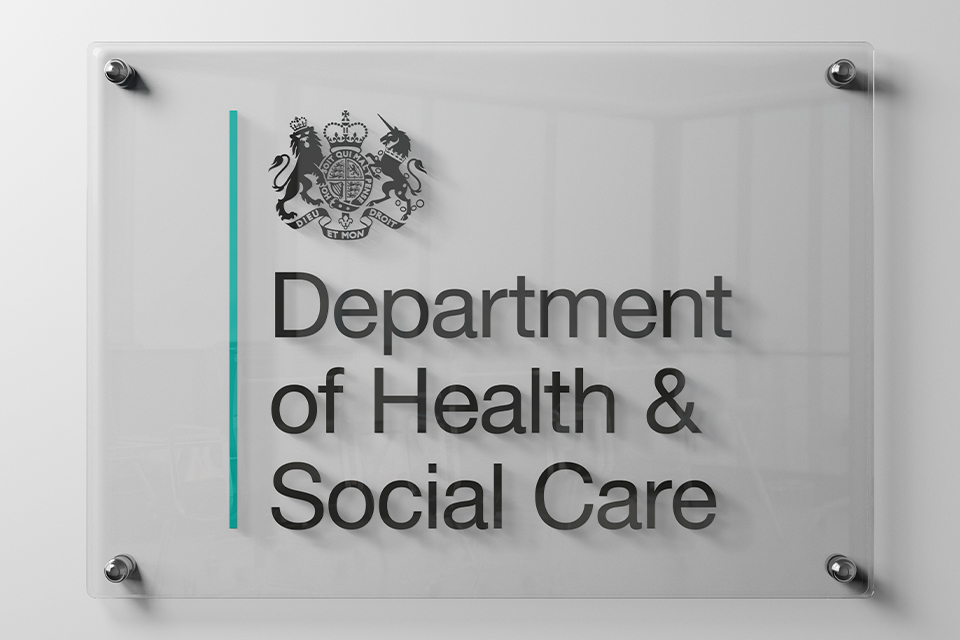We revisit the big news and major events from the second half of 2018
The first half of this year brought big changes in the personnel and operations of the digital scene in Westminster, as well as many developments – or, in some cases, a lack developments – that shaped the wide public sector technology landscape.
As we entered the second six months of 2018, the UK was less than a year away from exiting the European Union, the leader of North Korea had recently crossed the demilitarised zone and entered the country’s southern neighbour for the first time in 65 years and – stranger still – the England football team was progressing to the semi-finals of the World Cup. What a time to be alive!
Following on from the first part of our annual roundup on Friday, which ran through the biggest stories from the first half of 2018, today we bring you the news and events that shaped the public sector digital and data sector from July to December.
To remind yourself of the full story, just click on the links embedded throughout the article.
July
As with the first half of the year, the second half of 2018 began with a cabinet reshuffle. Once again Matt Hancock was on the move, replacing new foreign secretary Jeremy Hunt as health secretary. His replacement in DCMS was Jeremy Wright. Maintaining his reputation of being among Westminster’s biggest technology advocates, Hancock had only been in his new position a couple of weeks when he announced a £475m digitisation fund, and pledged that “tech transformation is coming”.
July also saw the launch of G-Cloud 10 – the latest iteration of the government’s flagship cloud and digital services framework. A total of 3,505 suppliers won a spot on the contract – including 649 who featured for the first time.
The Information Commissioner’s Office concluded its investigation into the use of personal data in political campaigning, and urged the government to create and implement new legislation “at the earliest opportunity”. The watchdog also hit Facebook with the maximum £500,000 fine.
The use of personal data in government was also under scrutiny on the back of the Windrush scandal, which prompted the Home Office to enact a three-month pause in data-sharing activities. The suspension applied to data being shared by the department with HMRC, the DVLA, and the DWP.
The government’s annual spending data, meanwhile, did not make good reading for SME supporters; the amount spent by Whitehall with smaller firms in the 2017 fiscal year dropped by more than £1bn, as the proportion of spending also declined – for the second year in a row.
In more procurement news, the Crown Commercial Service cancelled plans to begin development of the Crown Marketplace platform as a series of stand-alone tools, and reverted to its original intention of creating a single purchasing platform for five of its commercial agreements. However, the buying agency said that future frameworks may be added onto this initial platform, or it may create more individual marketplaces.
A busy month concluded with the publication of the UN’s biennial e-government league table. Having led the way in 2016, the UK slipped to fourth in the rankings, behind South Korea, Australia and new world leader Denmark.
August
 It emerged in August that national technology advisor Liam Maxwell was to leave government and take a role at public cloud giant AWS. Since arriving in Whitehall in 2011 as the Cabinet Office’s executive director of IT reform, Maxwell has been one of the UK digital government scene’s most high-profile figures.
It emerged in August that national technology advisor Liam Maxwell was to leave government and take a role at public cloud giant AWS. Since arriving in Whitehall in 2011 as the Cabinet Office’s executive director of IT reform, Maxwell has been one of the UK digital government scene’s most high-profile figures.
His former colleagues at GDS established a new unit dedicated to delivering the government innovation strategy, which is due to be published next year.
In worse news for UK tech, as it grew increasingly likely that the UK would ultimately be shut out of key elements of the EU Galileo satellite project, PM Theresa May announced in August that she had set aside £92m to explore options for the country to develop its own sat nav system.
September
September brought with it the looming deadline at the end of the month for all NHS trusts to introduce the e-Referral Service for all initial patient referrals from primary care into second care. But more than three weeks ahead of time, NHS Digital announced that 100% of trusts had already made the switch.
The National Crime Agency and the National Police Chiefs Council announced that they were working on contingency plans for the possibility that, after Brexit, UK law enforcement agencies might be shut out of key European criminal databases. A dedicated team was set up to examine the issue, as well as the potential loss of resources such as the European Arrest Warrant.
The government project to roll out the Emergency Services Network was reset in September, with a new incremental deployment strategy planned for 2019. As a result, the contract with Motorola to support the incumbent Airwave network was given a three-year extension.
The month also brought news of another departure of a senior Whitehall tech leader, with DWP digital chief Mayank Prakash announcing he was to leave at the end of the year. Prakash is to take on a post at British Gas parent company Centrica.
October
After a troubled history marked by delayed development and underwhelming uptake, the government announced in October that responsibility for the Verify identity-assurance tool developed by GDS is to be handed over to the service’s commercial partners. Public funding for Verify will end in 2020 – a move which was criticised by shadow Cabinet Office minister Jo Platt as an abandonment of the government’s responsibilities.
The Budget delivered two days before Halloween brought news that the government intends to introduce a 2% “digital services tax” targeted at internet giants. The levy is expected to raise as much as £400m a year. Although there were fewer tech-based initiatives than in the preceding year’s Budget, other measures announced by chancellor Philip Hammond included an investment in Mancunian digital skills and planned investigations into potential uses of blockchain technology.
November
Almost two years after the creation of the role of government chief data officer was announced, the government was forced to concede that the post remains unfilled. The news came shortly after the Cabinet Office admitted that it had failed in its initial bid to fill the post of government chief security officer, and had launched a second recruitment process.
Health secretary Matt Hancock announced in November that NHS was likely to lose 500 staff as part of a restructure. This represents about one it six of its total workforce.
In the local government space, London boroughs Camden, Haringey, and Islington announced that they were calling time on their ICT shared-service partnership after two years.
 North of the border, Glasgow published a major digital strategy that included plans for a citywide 3D strategy, online consultations with citizens over council budgets – and an iPad for every schoolchild aged nine and above.
North of the border, Glasgow published a major digital strategy that included plans for a citywide 3D strategy, online consultations with citizens over council budgets – and an iPad for every schoolchild aged nine and above.
A range of measures designed to “revolutionise government procurement” included plans for outsourcers to create so-called “living wills”, in which they will specify plans for how another party could take over a contract in the event of their failure. Capita, Serco, and Sopra Steria were the first firms to commit to doing so, with more major suppliers set to follow suit.
But the news this month – as it is so many months – was dominated by Brexit. A total of 15 of the 585 pages of the Draft Withdrawal Agreement published a month ago were dedicated to how the UK and EU will manage post-Brexit access to shared networks, IT systems, and databases. The UK will ultimately be shut out of 28 such systems – with a deadline of 2021 set in the vast majority of cases.
December
The final month of the year started with a major outage of the health service’s NHSmail platform. The problem, which shut down the entire system for a number of hours, was blamed on “a software issue” in the infrastructure of supplier Accenture.
In other NHS tech news, health secretary Matt Hancock also announced this month that the fax machine is to be outlawed. From January, trusts will no longer be allowed to buy new machines, with total eradication expected to take place by the end of March 2020.
As wide-scale pilots of the settlement scheme for EU nationals got underway, it emerged that those wishing to take part who are not able to access an Android phone could, theoretically, have to travel up to 250 miles to attend one of 13 locations where they can scan their ID documents.
Two of UK’s largest not-for-profit organisations focused on public sector digital transformation – Jisc and Eduserv – announced that they are to merge next year, with the latter brand name ultimately to be retired.
Click here to read the first half of our 2018 rundown, covering the biggest stories from January to June



